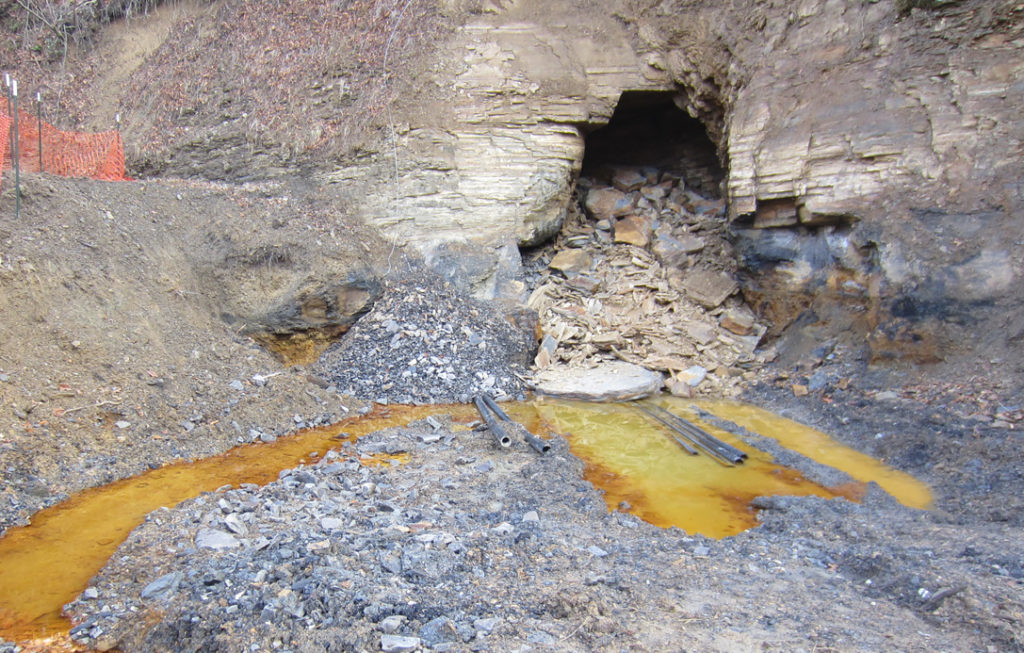Cleaning Up Coal Ash
For well over a century, power plants across the country have burned coal to generate electricity. And for just as long, leftover coal ash has been dumped in open, unlined pits near the power plant, usually located on a river or lake. Every year, U.S. power plants produce 130 million tons of coal ash, which is the second largest waste stream in the country after municipal garbage.
Coal ash concentrates the toxic heavy metals found in coal, including arsenic, mercury, lead and selenium. Stored in unlined, wet impoundments, coal ash has been leaking these toxics into our groundwater and surface waters for years. Sometimes these impoundments collapse — with disastrous results.
Yet government regulations for coal ash management are either non-existent or sparse, and there is little enforcement of the regulations that do exist. In North Carolina, this lack of oversight — and the complicity between state regulators, elected officials and Duke Energy — came to a boiling point in February 2014 when one of Duke’s coal ash impoundments spilled 39 million tons of ash into the Dan River.
Citizens living near North Carolina’s 33 coal ash impoundments — all of which have leaked — have fought for transparency from Duke and the state, and for cleanup of the pollution that threatens their property value, health and family. Their actions forced this issue into the headlines of news networks and to the forefront of environmental justice conversations in the United States.
Appalachian Voices stood with these communities as we worked for years to compel Duke Energy and the N.C. Department of Environmental Quality to excavate coal ash from all the North Carolina sites and dispose of it either in lined, dry landfills, away from waterways, or by recycling it for concrete or other uses, provided it’s done in a manner that protects public health and the environment.
On Jan. 2, 2020, North Carolina announced a historic settlement with one of the state’s most powerful corporations and polluters, Duke Energy. The settlement requires Duke to move nearly 80 million tons of toxic coal ash at six of its power plants to properly lined landfills onsite or recycle it.

Learn information about specific coal ash impoundments in the South, including health threats and safety ratings:
Additional Resources
Fact sheets, videos, links to academic research, and more
Sign Up to Act
Help us protect the health of our communities and waterways.
Latest News
Intro: The Legacies of Coal
As Appalachia’s coal industry continues to decline, the scale of the damage it has cas becomes even more apparent.
Running Buffalo Clover Could be Removed from Endangered Species List
The U.S. Fish and Wildlife Service proposed removing the running buffalo clover from the endangered species list in August. The plant was previously thought to be extinct for more than 40 years before its rediscovery in 1983.
Member Spotlight: Waltr Lane
A profile on Waltr Lane, a distributor of The Appalachian Voice who refers to himself as a “greenneck poet.”
Audit Finds Mine Safety Penalties Ineffective
An August 2019 federal audit of the U.S. Mine Safety and Health Administration found that mine safety penalties did not contribute to the overall safety of mining operations.
Kentucky Residential Solar Costs Expected to Rise
A new Kentucky law limiting the tax credit for residential solar net metering will take effect in 2020.
Energy Democracy Tour Gathers Communities’ Visions for Our Energy Future
The Tennessee Valley Energy Democracy Tour and the Energy Justice North Carolina, End the Duke Monopoly Tour have been a roaring success so far! Stay tuned for more tour dates in both states and in Virginia.







